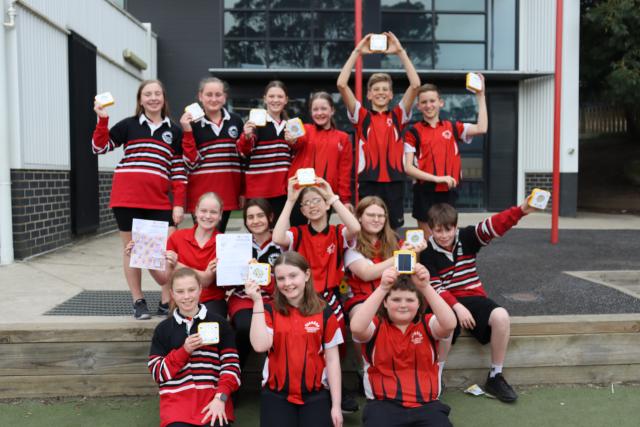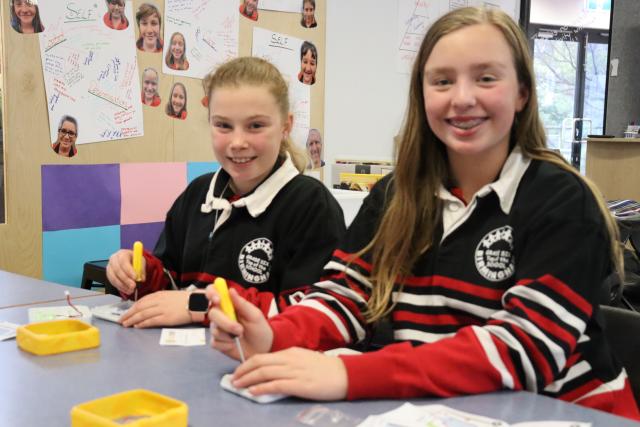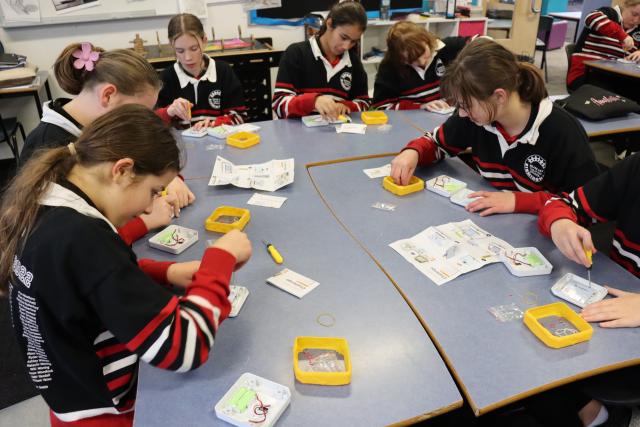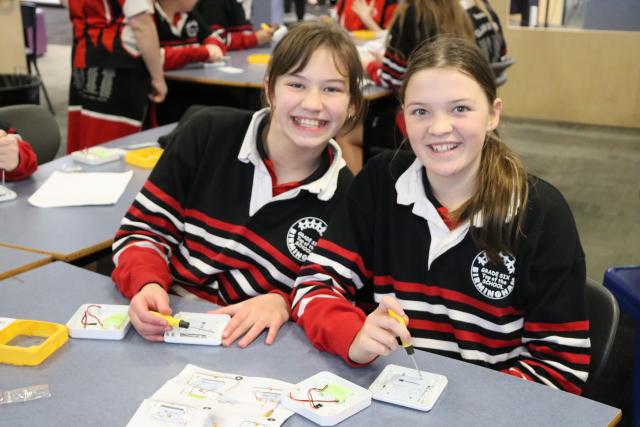
By Mikayla van Loon
With a focus on producing global citizens at Mount Evelyn’s Birmingham Primary School, Grade 6 students have just built and sent solar powered lights to disadvantaged countries to help young people undertake studies and pursue an education.
Global studies teacher Sally Buckland said for the last term, Grade 6 students have been learning about different types of renewable and coal powered energy, seeking to combine that knowledge with a way to help others.
That’s where SolarBuddy came in – an Australian charity aiming to achieve better outcomes for young people currently experiencing energy poverty.
“We started off with learning about the global goals, I believe there’s 17 of them, and the main focus was renewable and affordable energy,” Grade 6 captain Ebony said.
“We also learnt about energy poverty, which is where you don’t have enough energy or any lighting and we’re going to be able to send these lights called SolarBuddy’s to different countries.
“It means that kids at nighttime can go out and they can study because without light then you can’t study.”
The SolarBuddy lights come disassembled, requiring each student to learn how to complete the wiring and waterproof the interior with rubber bands.
Fellow Grade 6 captain Finn said it was really fun to be able to put the lights together.
“It was simple but good at the same time. The parts were all very kid friendly and it’s very portable and sustainable,” he said.
“Energy poverty was not something I ever learnt about and I never knew kids would travel from their homes through the nighttime to go to traffic lights and bus stops, just to find any light, just so they can study and get out of poverty.”
Ebony said herself and her classmates were also able to write letters to the recipient of the light they built.
“We wrote a lot of motivational things and then we wrote a bit about ourselves. So it’s kind of like pen pals but then we don’t get a letter back,” she said.
“It was really enjoyable because we knew it was going to a good place. It would have been different if we built them and then we just took them home because it wouldn’t have done anything. So it was nice to know they were going to someone who needed it.”
Ms Buckland said this was the first time students have been able to apply their knowledge around energy in this way and connect to a project far greater than themselves.
“They were able to empathise with it more in a really simple way. As silly as it sounds, having lost power last year, in a big way, did give them a greater understanding instead of just saying ‘imagine if you didn’t have power’,” she said.
“Some of these kids lost it for quite a few days, so it did show them how important it is to have access to energy.”
Having won a global education award a few years ago, Ms Buckland said the leftover funding went to purchasing the SolarBuddy lights but in the future she hopes students will be inspired to fundraise for the project themselves.
In about six weeks time, Ms Buckland said the students will receive some indication of where their solar lights were sent and who they were able to help by contributing in this way.









